STEM Hub Cubicles
Cubicle reservations are not available at this time, but we encourage you to stop by and ask front desk about our available spaces and we will do our best to accommodate you. Study cubicles are more spacious than the average library desk providing a comfortable environment to complete work/learn. Disconnected from main study areas for a more quiet/calm ambiance.
If none of the cubicles you request to reserve are available we will provide some suggestions for spaces within the library. We also invite you to read the biographies of each Women in Science the cubicles are named after.
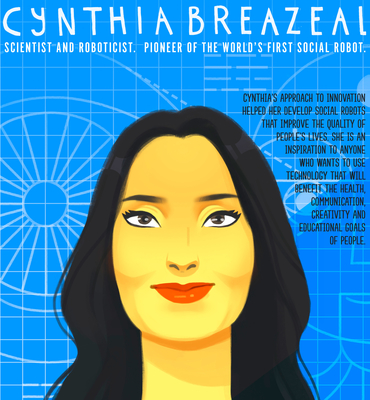
About Dr. Cynthia Breazeal: She is an Associate Professor of Media Arts and Sciences at the Massachusetts Institute of Technology where she founded and directs the Personal Robots Group at the Media Lab. She is also the founder and Chief Scientist of Jibo, Inc. She is a pioneer of Social Robotics and Human-Robot Interaction. She authored the book Designing Sociable Robots, and she has published over 100 peer-reviewed articles in journals and conferences on the topics of Autonomous Robotics, Artificial Intelligence, Human-Robot Interaction, and Robot Learning.
This cubicle is not available for reservation
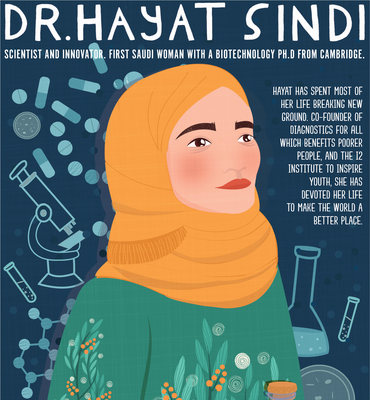
About Dr. Hayat Sindi: She was born in Makkah, Saudi Arabia, and is one of the world’s leading biotechnologists. She is the Founder and President of the i2 Institute and a co-founder of Diagnostics For All. She was ranked by Arabian Business magazine as the 19th most influential Arab in the world and the ninth most influential Arab woman. Sindi has a Ph.D. in biotechnology from Newnham College, Cambridge, which she obtained in 2001; she was the first Saudi woman to be accepted at Cambridge University to study the field of biotechnology, and the first woman from any of the Arab States of the Persian Gulf to complete a doctoral degree in the field.
7 Seats Available
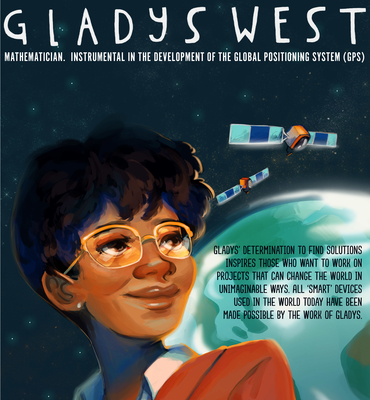
About Dr. Gladys West: An American mathematician known for her contributions to the mathematics underpinning GPS. Her contributions to GPS were only uncovered when a member of her sorority, Alpha Kappa Alpha, read a short biography West had submitted for an alumni function.
This cubicle is not available for reservation
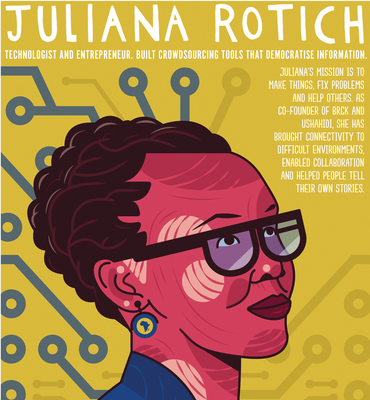
About Juliana Rotich: A technologist, strategic advisor, entrepreneur, and keynote speaker. She is co-founder of BRCK Inc, a hardware and services technology company based in Kenya. BRCK was formed to realize a vision for enabling communication in low infrastructure environments by developing useful, innovative technologies. Juliana also co-founded Ushahidi Inc., a non-profit tech company, which specializes in developing free and open-source software for changing how information flows in the world.
6 Seats Available

About Dr. Mae Jemison: An American engineer, physician, and NASA astronaut. She became the first African American woman to travel in space when she went into orbit aboard the Space Shuttle Endeavour on September 12, 1992. She resigned from NASA in 1993 to found a company researching the application of technology to daily life. She appeared on television several times, including as an actress in an episode of Star Trek: The Next Generation. She is a dancer and holds nine honorary doctorates in science, engineering, letters, and the humanities. She is the current principal of the 100 Year Starship organization.
12 Seats Available
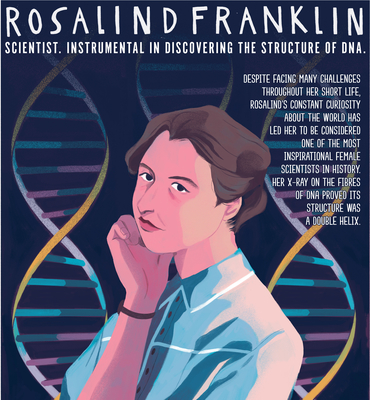
About Dr. Rosalind Franklin: was a pioneer of the study of molecular structures receiving recognition among scientists for her research on the molecular structure of coal, viruses, and DNA. Her X-ray diffraction images of DNA enabled the University of Cambridge’s Francis Crick and James Watson to identify the molecule’s double helix structure. For years her work on the structure went unnoticed as only Crick, Watson, and Franklin’s colleague Maurice Wilkins received the Nobel Prize for the discovery in 1962. In 2003 The Royal Society established the Rosalind Franklin Award to bring attention to the outstanding work of women in STEM.
7 Seats Available
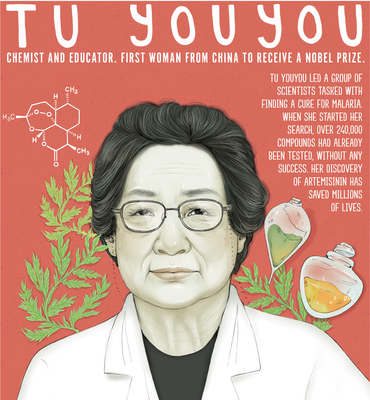
About Tu You You: A Chinese pharmaceutical chemist and educator. She discovered artemisinin (also known as qinghaosu) and dihydroartemisinin, drugs used to treat malaria. Her discovery was a significant breakthrough in 20th-century tropical medicine, saving millions of lives around the world.
2 Seats Available

About Maria Da Penha: A Brazilian biopharmacist and women human rights defender. She advocates for women's rights, particularly against domestic violence. When Maria da Penha was almost killed by her husband, there wasn’t a single police station she could go to in Brazil that specialized in violence against women. She brought a case against her attacker to be condemned. In response to this, the Brazilian government in 2006 enacted a law now known as the Maria da Penha Law on Domestic and Family Violence, which increased the severity of punishment for domestic violence against women, whenever it occurred in a domestic or family environment.
6 Seats Available
Images by multiple artists via Medium.com
